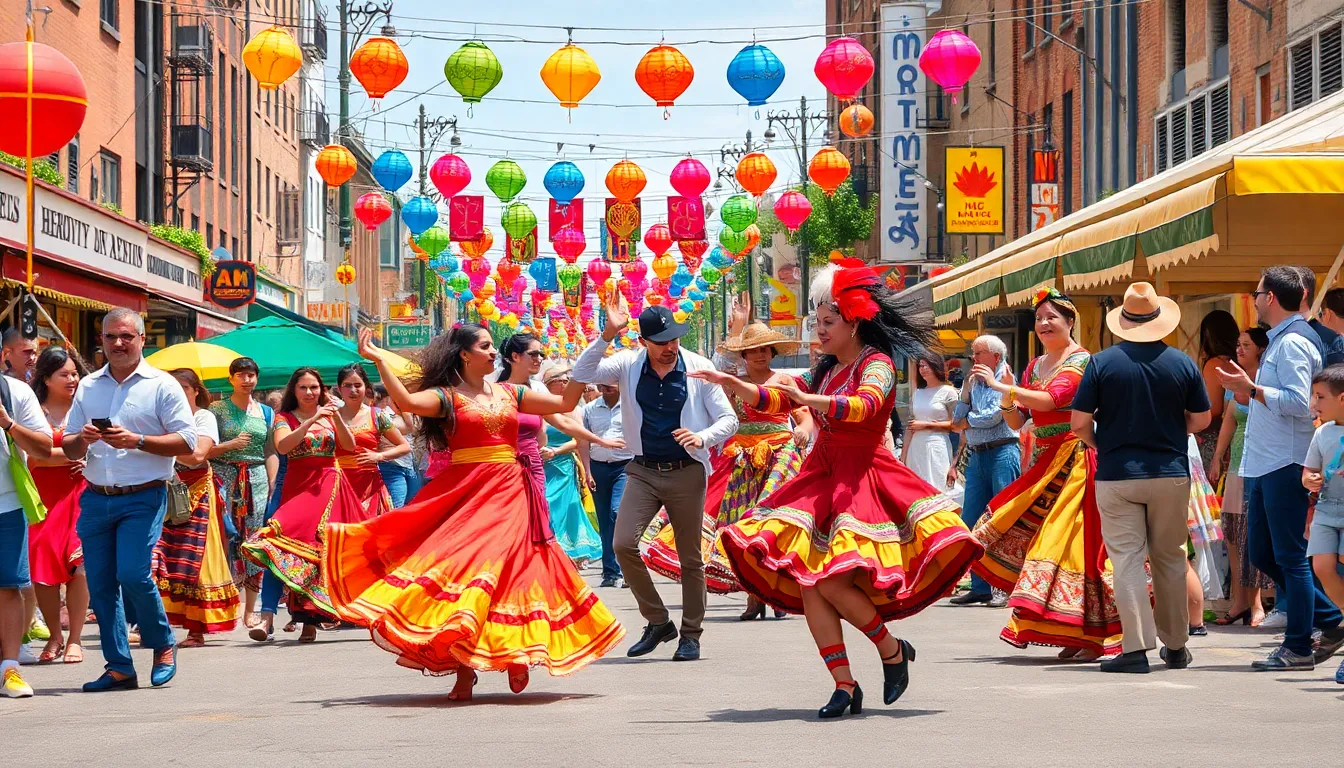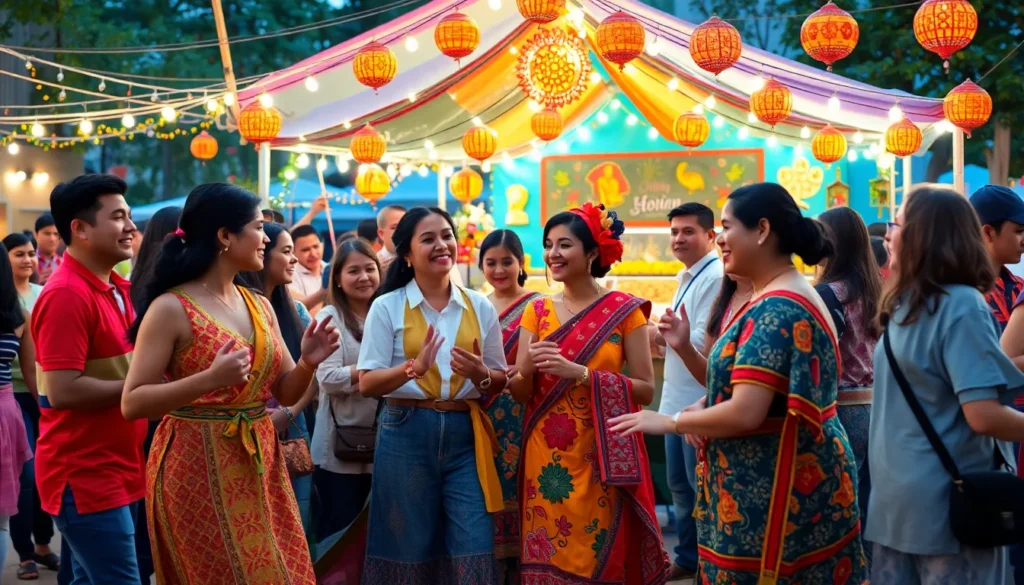Culture shapes the way people live, think, and interact, making it one of the most fascinating topics to explore. From quirky traditions to mouthwatering cuisines, every culture has its own unique flair that adds spice to life. Who knew that a simple meal could tell stories of history, identity, and even a bit of mischief?
Diving into the world of culture reveals a treasure trove of facts that are as entertaining as they are enlightening. Ever wondered why certain dances make people break into spontaneous laughter or how some festivals can turn a quiet town into a vibrant carnival? Get ready to uncover the delightful oddities and surprising similarities that bind us all together, proving that while we might be different, we’re all just a little bit quirky at heart.
Table of Contents
ToggleUnderstanding Culture
Culture shapes lives, thoughts, and interactions in profound ways. This dynamic concept encompasses traditions, cuisines, and communal experiences that form unique identities.
Definition of Culture
Culture refers to the social behavior and norms prevalent within human societies. It includes beliefs, values, languages, and rituals that define a group’s identity. Scholars emphasize culture as a complex system, influencing how individuals perceive the world. Anthropologists often argue that culture evolves over time, adapting to changing circumstances while retaining core values. Understanding culture requires recognizing its nuances and recognizing that no single definition encompasses its breadth.
Elements of Culture
Elements of culture include language, customs, values, and social practices. Language serves as a primary means of communication, conveying traditions and collective history. Customs encompass daily habits and festive rituals, providing insight into societal values. Values reflect what a community considers important, driving behaviors and decision-making. Art, music, and literature further illustrate cultural expressions, allowing for creative interpretations of life experiences. Shared beliefs foster group identity, strengthening connections among individuals. Each element interplays to create a rich tapestry that defines the culture of a society.
Fascinating Facts About Culture

Culture defines the essence of societies worldwide. It shapes identities through distinct practices, beliefs, and traditions.
Unique Cultural Practices Around the World
Dances vary significantly across cultures. For instance, the tango in Argentina displays passion, while traditional Hawaiian hula tells stories of nature and ancestors. Festivals serve as additional cultural markers; Diwali illuminates homes in India, celebrating the victory of light over darkness. Culinary traditions also reflect identity; sushi in Japan showcases artful presentation alongside flavor. Every practice contributes to a broader understanding of human creativity and expression.
Cultural Diversity and Its Importance
Cultural diversity enriches societies globally. It promotes tolerance and understanding among different communities. Societies that embrace diverse cultures often foster innovation and creativity. The blending of ideas leads to advancements in art, science, and social practices. Furthermore, exposure to various cultures enhances social cohesion, building bridges between individuals. Celebrating differences cultivates respect, paving the way for peaceful coexistence.
The Role of Culture in Society
Culture significantly shapes societal structures, influencing interactions and identity formation. It acts as a lens through which individuals view the world, deeply affecting values and behaviors.
Culture and Identity
Identity is closely tied to cultural elements, integrating shared traditions and values. Individuals often find a sense of belonging through cultural groups, reflecting common practices and beliefs. Unique customs, languages, and experiences contribute to a distinct cultural identity, emphasizing community connections. Celebrations, rituals, and art further express this identity, enriching individual lives while fostering respect for diversity.
Influence of Culture on Behavior
Behavior in society often reflects cultural norms and expectations. Cultures dictate acceptable actions and social interactions, impacting personal conduct. Individuals adapt to these influences, shaping their responses in various contexts. Respecting traditions shapes etiquette and communication styles, affecting relationships. Cultural influences can inspire creativity, encouraging artistic expression and innovation across communities.
The Evolution of Culture
Culture undergoes continuous evolution, reflecting societal shifts and global interactions.
Historical Changes in Culture
Historical events significantly shaped cultural transformations. The Industrial Revolution introduced urbanization, altering lifestyles and social structures. Colonialism spread various cultural practices worldwide, influencing local traditions and practices. Wars sparked shifts in community values, often leading to a resurgence of national identities. Innovations in technology fostered increased connectivity, enabling the sharing of ideas across borders. Migration patterns also enriched cultures, blending diverse traditions that enriched local identities. Each shift leaves a lasting impact, demonstrating that culture is inherently dynamic and responsive to surrounding influences.
Modern Culture vs. Traditional Culture
Differences between modern and traditional cultures are evident in various aspects. Traditional culture emphasizes community practices, rituals, and oral histories passed down through generations. Modern culture often reflects individualism and rapid technological advancement, prioritizing convenience and efficiency. Social media plays a significant role in shaping contemporary culture, enabling real-time sharing and interaction. In contrast, traditional cultures value deep connections to heritage and identity, often hosting rituals and festivals that reinforce community bonds. Adaptation happens as individuals navigate between traditional and modern influences, leading to unique cultural expressions that resonate with new generations.
Culture is a vibrant tapestry that weaves together the stories and identities of individuals and communities. It shapes how people perceive the world and interact with one another. The diversity of cultural practices enriches societies and fosters a sense of belonging. By embracing various traditions and values, individuals can cultivate respect and understanding among different groups.
As cultures evolve and adapt, they continue to reflect the dynamic nature of human experience. The interplay of modern influences and traditional practices creates a unique landscape that resonates with new generations. Ultimately, recognizing and celebrating cultural diversity not only enhances personal connections but also paves the way for a more harmonious and innovative society.




